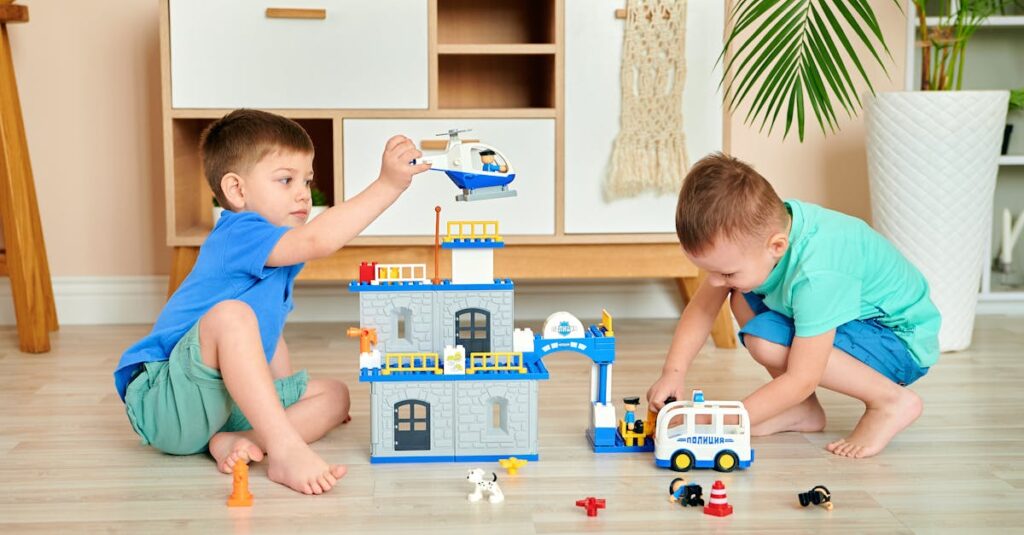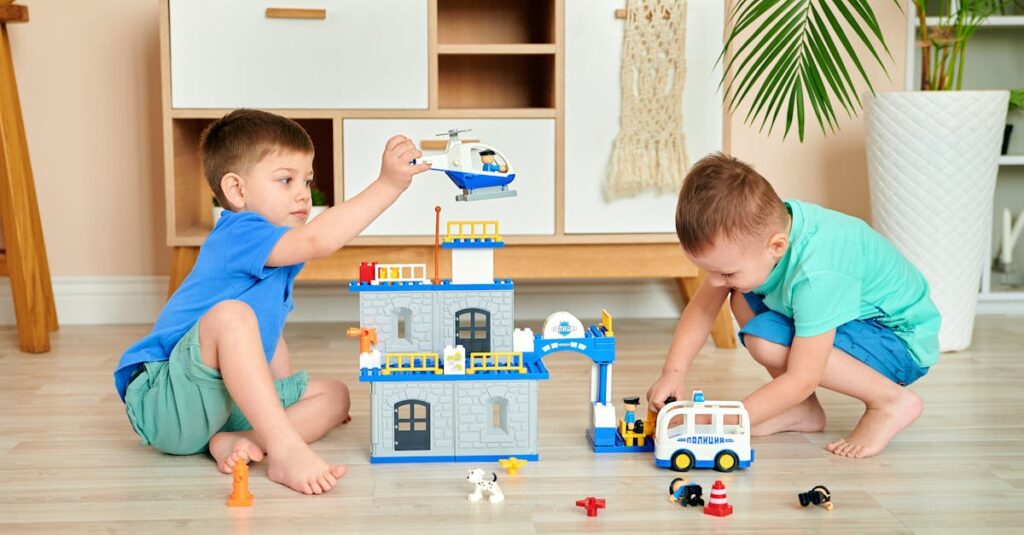Ever feel like a parent is acting more like a chopper than a cheerleader? Welcome to the world of helicopter parenting, where hovering is just part of the job description. While it’s great to offer support and guidance, too much of a good thing can create more problems than it solves. In this text, we’ll explore what helicopter parenting really means, how to spot the signs, and the effects it might have on children. So grab a snack, sit back, and find out if you, or someone you know, are taking parenting to new heights.
Table of Contents
ToggleDefining Helicopter Parenting

Helicopter parenting refers to a style of overly protective and involved parenting. Think of a helicopter parent as someone who hovers continuously over their child, monitoring every decision and action closely. This over-involvement often stems from a desire to keep children safe and ensure their success, but it can veer into territory that stifles independence and growth.
Imagine a mom who organizes every aspect of her kid’s life, from playdates to college applications, and meticulously oversees assignments assignments. This dedication may seem admirable, but it can also inhibit a child’s ability to navigate challenges on their own. Eventually, helicopter parenting can create a bubble around a child, shielding them from valuable life lessons.
Common Signs Of Helicopter Parenting
Identifying helicopter parenting can be subtle yet revealing. Here are some common signs:
Micromanaging Every Detail
Helicopter parents often find themselves deep in the weeds, reviewing syllabi, negotiating with teachers, and even doing their child’s assignments. If a parent can’t resist intervening in every task, it’s a clear red flag.
Avoiding All Risks
When a parent scrambles to shelter their child from any potential risk, be it emotional or physical, it often tips into helicopter territory. Instead of allowing a child to face manageable challenges, these parents swoop in to save the day, often to the child’s detriment.
Over-Involvement in Playdates
A helicopter parent might set up playdates, but they won’t just drop their child off, they’ll sit nearby, intervene in conflicts, and ensure everything goes smoothly. This over-involvement sends the message that kids can’t handle their own social interactions.
Constant Communication
If a child feels the pressure of constant texts or calls from a parent throughout the day, it may be a sign of helicopter parenting. The fear of not knowing their child’s whereabouts can lead to a continuous stream of communication that can feel suffocating.
Making Decisions for Their Child
When it comes time for crucial decisions, helicopter parents often make choices for their kids rather than involving them in the process. From selecting extracurricular activities to plotting future careers, this level of involvement can lead to children feeling disempowered.
Impact On Children Of Helicopter Parents
The consequences of helicopter parenting can be profound and long-lasting. Children raised in such environments may struggle with:
Anxiety and Insecurity
When decisions are made for them, children can develop anxiety and insecurity that lasts into adulthood. They may not trust their own judgment, leading to second-guessing even the smallest choices.
Lack of Independence
Constant intervention prevents children from developing crucial life skills. As they grow into young adults, they may still rely heavily on parental guidance in situations where independence is key.
Poor Coping Skills
Helicopter parenting stifles a child’s ability to deal with disappointments or failures. Without these experiences, children may find it challenging to navigate setbacks later in life.
Relationship Issues
Difficulty establishing relationships is another potential side effect. If a child is not allowed to navigate social interactions independently, they may struggle to build friendships or work collaboratively in teams later on.
Differences Between Supportive And Helicopter Parenting
Understanding the critical differences between supportive parenting and helicopter parenting can provide valuable insights for parents.
Supportive Parenting
Supportive parents encourage their children’s independence while providing guidance and resources. They step in when necessary but allow children to learn essential life skills through trial and error.
Helicopter Parenting
In contrast, helicopter parents prioritize control and protection over independence. Their intention may be to help, but their methods often lead to negative consequences for their children’s development.
Recognizing the balance between support and overreach is crucial. A guiding hand is essential, but so is knowing when to let go.
Strategies For Parents To Avoid Helicoptering
Parents can take steps to avoid helicopter parenting while still offering unwavering support. Here are some effective strategies:
Encourage Independence
Allowing children the opportunity to tackle challenges on their own fosters independence. Start small by letting them make choices about everyday activities.
Set Boundaries
Establishing clear boundaries around involvement can help. Decide ahead of time when parental intervention is necessary and when it’s best to let children figure things out for themselves.
Focus on Communication
Practice open communication with your child. Instead of swooping in, ask them what they think they should do in a given situation. This shifts decision-making responsibility to them.
Trust the Process
Understand that mistakes are part of the learning process. It’s crucial for parents to trust that their child will learn valuable lessons from failures and setbacks.
When To Seek Professional Help
Recognizing the signs of helicopter parenting and its consequences is the first step toward healthier parenting styles. But, sometimes, intervention from a professional might be necessary.
Signs That Indicate Seeking Help
If you notice persistent anxiety in your child about failure or decision-making, or struggle with autonomy, it may be time to seek support from a child psychologist or counselor. Addressing these issues early can prevent long-term adverse effects.













